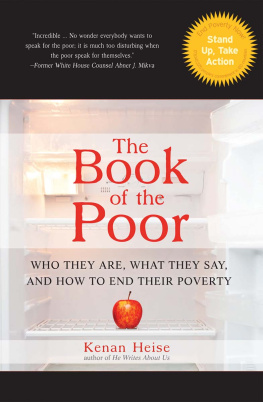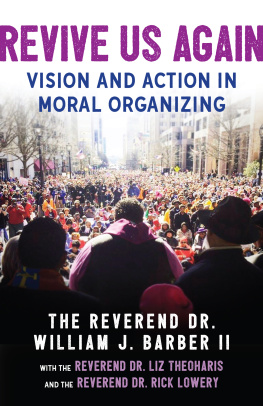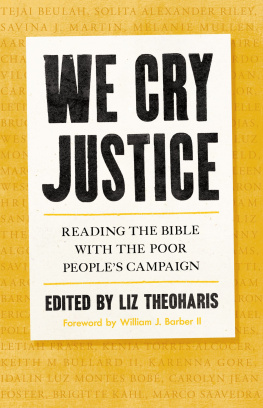Poor peoples
energy outlook
2012
Praise for this book...
The Poor peoples energy outlook will definitely contribute to the debate and actions towards addressing the needs of the energy poor.
Stephen Gitonga, United Nations Development Programme
Its great to see such a clear voice coming out of Practical Action on behalf of the poor I pray the world listens!
Abeeku Brew-Hammond, The Energy Centre, Kwame Nkrumah University of Science and Technology, Ghana
The approach is valuable and leads us towards a better understanding of the myriad dimensions of the lack of energy access experienced by the developing world.
Dr Priyadarshini Karve, Appropriate Rural Technology Institute (ARTI), India
Defining and measuring energy poverty is absolutely vital to effectively address the issues and ultimately improve lives in a long-term, sustainable manner; but it isnt necessarily an easy thing to do. The PPEO tackles this challenge in an informed, professional and highly useful manner. It is a book worth reading.
Samuel N. Shiroff, Bosch und Siemens Hausgerte GmbH, Munich, Germany
The PPEO 2012 is a valuable contribution to better understanding the links between access to energy services and economic development.
Morgan Bazilian, UNIDO and UN-Energy
This is an insightful and extremely useful report, based on long experience and thoughtful analysis. In revealing the manifold importance of energy to all human enterprise it sets out powerful arguments and practical measures to break the barriers to energy access for poor people. Above all, this report encourages new and better ways of thinking about the issues and invites readers to contribute to further discussion.
John Magrath, Oxfam
The PPEO provides a valuable complement to the IEAs World Energy Outlook by widening the term energy access to include the increased use of modern energy services for production and income generation by poor people and not just consumption (light and cooking). Practical Action is to be commended for sustaining this major contribution.
Andrew Barnett, The Policy Practice Limited
The new Poor peoples energy outlook is a useful source of information and will be of great help in highlighting the energy needs of the poor in the coming UN Year on Sustainable Energy for All.
Dr Marlis Kees, GIZ
The PPEO 2012 explains concisely the complex issue of energy access. It is a useful tool to understand the challenges of and potential approaches towards Total Energy Access both for people new to the field as well as for practitioners. It provides relevant facts and figures that are often unavailable or challenging to find.
Barbara Boerner, Canopus Foundation, and Solar for All
The PPEO is an excellent document touching on many important aspects of energy for productive income-earning opportunities essential for improving livelihoods.
Estomih N. Sawe, TaTEDO, Tanzania
Poor peoples
energy outlook
2012
Energy for earning a living
About Practical Action
Practical Action is a development charity with a difference. We use technology to challenge poverty by building the capabilities of poor people, improving their access to technical options and knowledge, and working with them to influence social, economic, and institutional systems. We work internationally from regional offices in Latin America, Africa, and Asia. Our vision is of a sustainable world free of poverty and injustice in which technology is used for the benefit of all.
Practical Action Publishing Ltd
Schumacher Centre,
Bourton on Dunsmore, Rugby,
Warwickshire, CV23 9QZ, UK
www.practicalactionpublishing.org
Practical Action, 2012
ISBN 978-1-85339-731-8
A catalogue record for this book is available from the British Library.
Citation: Practical Action (2012) Poor peoples energy outlook 2012: Energy for earning a living, Practical Action Publishing, Rugby, UK
Practical Action encourages reproduction and dissemination of material in this report, provided that proper citation is made and that material is used accurately and not in a misleading context. However, please note that permission to reproduce figures and tables referenced to other authors should be obtained from the copyright holder. Reproduction of any part of this publication for commercial use is not authorised without the written permission of Practical Action Publishing.
Since 1974, Practical Action Publishing has published and disseminated books and information in support of international development work throughout the world. Practical Action Publishing is a trading name of Practical Action Publishing Ltd (Company Reg. No. 1159018), the wholly owned publishing company of Practical Action. Practical Action Publishing trades only in support of its parent charity objectives and any profits are covenanted back to Practical Action (Charity Reg. No. 247257, Group VAT Registration No.880 9924 76).
Design, editing and production by Practical Action Publishing
Printed in the UK by Ashford Colour Press on FSC mixed sources paper
Contents
List of figures
List of tables
Foreword
A lack of access to modern energy services negatively affects nearly a third of humanity. While poor people remain in darkness and ill health, there can be no escape from the vicious cycle of poverty. But how can this cycle be broken, and turned to one of increasing prosperity and economic and social development? To answer that question we must constantly improve our shared understanding of the scale, causes, and evolving solutions to the multiple dimensions of energy poverty.
Technological innovation as well as innovative delivery and financing models are making new and improved energy products and services more available and more affordable. Accelerating the development and uptake of such products and services must be the focus of our efforts to dramatically scale-up the quality and quantity of energy access available in the poorest parts of the world. Likewise, building on existing national and regional plans will be crucial.
This is the objective of the UN Year of Sustainable Energy for All, to be observed in 2012. As mandated by the United Nations General Assembly, we will focus on generating the public and private sector commitments needed to launch a global goal of achieving universal access to modern energy services by 2030, and designing the action agenda needed to achieve it.
The Poor peoples energy outlook (PPEO) 2012 supports and contributes to this agenda with this years theme of energy for earning a living. By revealing more comprehensively how energy access underpins wealth creation, the PPEO highlights the steps that turn energy access into development. By linking the needs of people and enterprises with a range of solutions, it informs immediate actions. By describing the wider energy access ecosystem, it points to a systemic shift that might lead to a more sustainable and equitable energy future.
It is for all of these reasons that I welcome this second edition of the PPEO.








